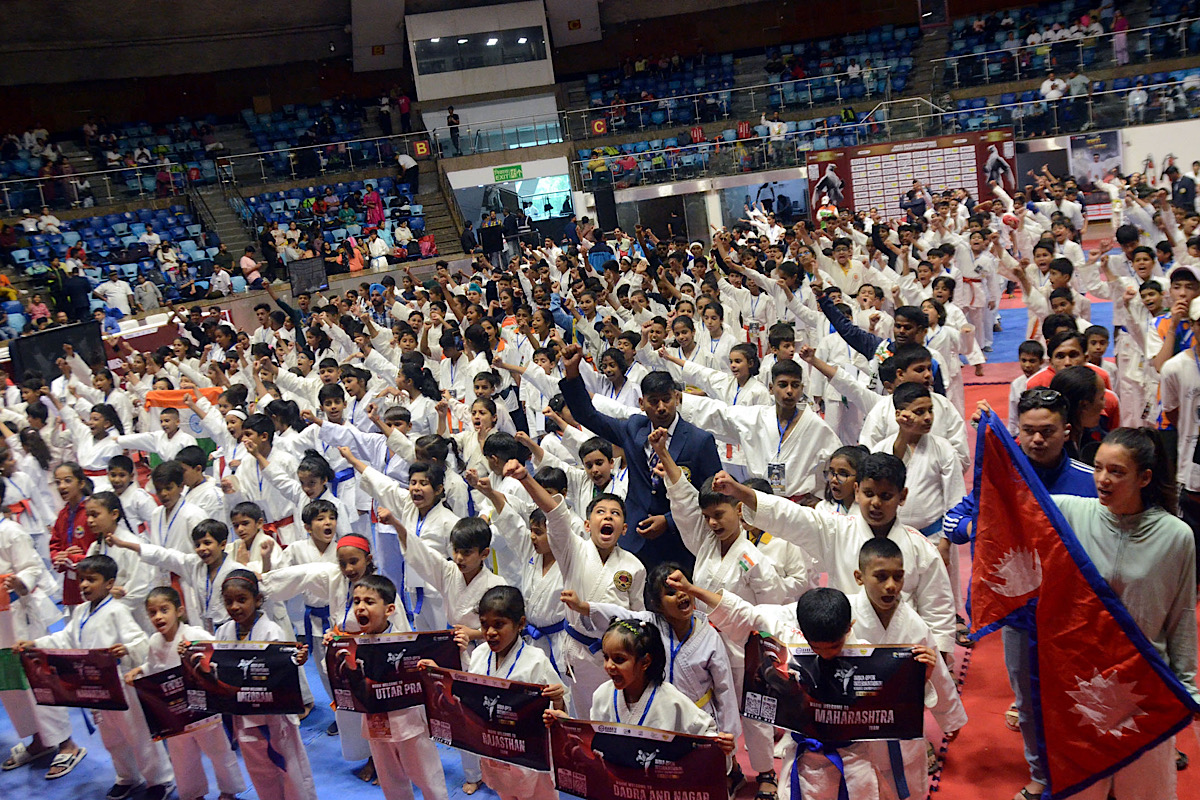Champions Trophy: Shreyas Iyer finishes as second-highest run-scorer in tournament
Iyer might have missed out on the much-deserved half-century but he was involved in a crucial 61-run fourth-wicket partnership with Axar Patel in the chase of 252.
India Open International Karate Championship, organised by the Indian Karate Federation, is currently underway at the Talkatora Stadium in New Delhi

(Photo: Subrata Dutta/SNS)
India Open International Karate Championship, organised by the Indian Karate Federation, is currently underway at the Talkatora Stadium in New Delhi. The event, which started on August 4, will go on till August 6.
All states are sending participants, bearing their full expenses. The participants have brought great dreams with them, most of which are related to obtaining a medal at the national level in order to open more doors for karate in the country.
Advertisement
During conversations with coaches and players from different states participating in the competition, Statesman learned about the athletes’ impressive accomplishments and hard work in this combat sport over the past few years.
Advertisement
Karnataka shared that they had learned karate from Japanese professionals during a tour to Japan for the World Championships in 2019, and had won two bronze and one silver at the Asia-Pacific Championships representing the nation in 2018. However, the state has not given much importance to the sport yet.
The competition was not only participated in by Indian states but also carried significant weight for various countries like Nepal, who brought exceptional talents across borders to promote the sport in their land.
The opening ceremony was inaugurated by Mr Kuldeep Wasni (Delhi Olympic President), Mr Kuldeep Vats (President), and Mr Sanjeev Jangra (General Secretary) lighting the lamp, followed by a march past of every state with a poster bearer representing the state. The event began with the singing of the national anthem, after which the competition began. The three days were divided based on age groups, with the first day including groups under the age of 13 years presenting their techniques and formations in front of the jury. The jury pointed them out based on their overall techniques out of 20, with each judge carrying a point of five.
The competition will follow a system based on various sub-groups due to a large number of candidates and systems. The first day focused on the sub-junior category, which focused on age groups up to 13 years. After the first day, the second day will focus on the junior and cadet groups of 16-17 and 14-15 age groups. The last day will majorly focus on the senior group, which ranges from 18 years and above. The first, second, and third positions in each group will be awarded trophies, karate kits, medals, and a T-shirt, serving as a memento and motivation for karate individuals to set their name in world karate events someday.
Advertisement